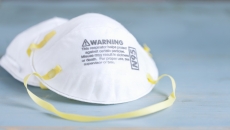OTTAWA - The parliamentary budget officer is estimating that a new federal tax on vacant, foreign-owned properties may not bring in as much as the Liberals hope.
The one per cent tax was to take effect at the start of the year and the Finance Department estimates it will bring in $200 million in the 2022-2023 fiscal year, which begins in April.
Over five years, the government expects to yield $700 million from the tax on properties that are sitting vacant, or which officials deem to be underused.
In a report looking at the measure, budget officer Yves Giroux's office projects the tax won't pad coffers by as much as federal estimates.
His report estimates that the government will bring in $130 million from the measure during its first year, and $600 million over five.
Giroux's report notes some uncertainty with any estimates over what he notes are the "uneven breadth and quality of data available" about foreign ownership that could overestimate or underestimate actual values.
The report also points to potential behavioural changes that could affect the final accounting as owners adjust usage of their homes to avoid paying a tax that amounts to one per cent of the property's value.
Giroux's modelling relies in part on the experience of British Columbia, which in 2016 enacted a 15 per cent foreign buyers’ tax in Metro Vancouver, and since it raised to 20 per cent and expanded it to other communities.
That tax had a short-term cooling effect, but prices have been on a stratospheric rise since 2019. The Canadian Real Estate Association's latest figures on the Vancouver market show the average price in December 2021 was $1.23 million, a year-over-year increase of 17.3 per cent from the just over $1 million recorded in December 2020.
The Liberals have made some adjustments to the original plan to tax vacant, foreign-owned homes by offering an exemption for vacation properties owned by non-Canadians like Americans who come to B.C. in the summer.
The government's economic update in December estimated that the exemption would reduce revenues by $30 million in the coming fiscal year, and then $25 million in each of the ensuing four years.
The tax on vacant homes is one part of the plans the Liberals have laid out to crack down on rising home prices that have risen rapidly over the course of the pandemic, fuelled by low interest rates and demand for larger houses.
Research by the Bank of Canada suggests part of the recent spike in prices is linked to an increase in activity from domestic investors who expect values to continue to rise.
The Bank of Canada last week lifted its promise to keep its trendsetting interest rate at its rock-bottom level. When it starts hiking rates, the increase will filter through to the rates charged on mortgages.
The bank's second-in-command last week said higher interest rates alone wouldn't temper activity and prices in the country's housing market.
"The most important thing that will restore balance to the housing market in Canada is an increase in supply," said senior deputy governor Carolyn Rogers. "Supply has not kept pace with demand and we think that's an important thing that needs to happen."






